In a world where popular titles reign supreme on bookstore shelves, there’s an unmatched allure in discovering the hidden gems, the underrated masterpieces. Turning pages of lesser-known but equally impactful marketing books can be an enlightening journey, offering fresh perspectives, unconventional wisdom, and nuanced insights often overlooked in mainstream bestsellers. Beyond the common rhetoric lies a treasure trove of wisdom, waiting to reshape your marketing strategies in subtle yet profound ways. This curated list of underrated marketing books invites you to dive deeper, to challenge the status quo, and to enrich your understanding from voices that, while not always the loudest, are certainly among the most profound
1 : How customers choose – By FionaSKY
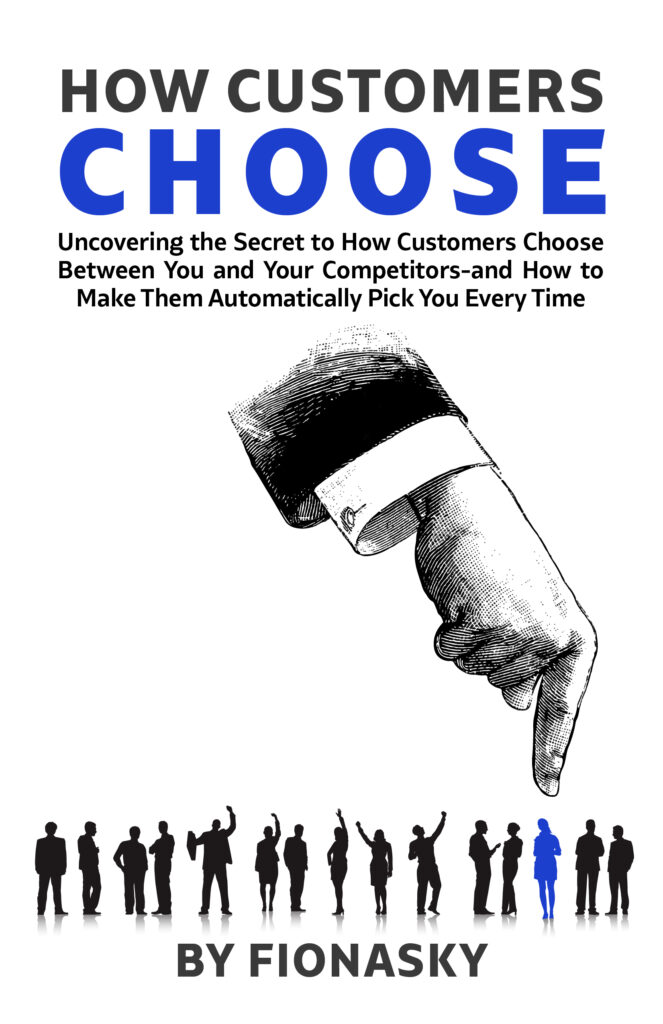
In an era saturated with choices at every turn, FionaSKY’s “How Customers Choose” emerges as a groundbreaking exploration into the psyche of the modern consumer. This isn’t just another treatise on market strategies; it’s a deep dive into the very essence of decision-making, wrapped in a compelling narrative that’s as enlightening as it is engaging.
From the very first pages, the stage is set with a personal touch, sharing the journey of the author and his family’s construction business in South Africa. This anecdotal approach lends the book an authenticity that’s rare in business literature. It’s not just theory; it’s lived experience, making the insights all the more resonant.
Unlike most books on marketing, the author successfully avoids writing down mere buzzwords. He instead elevates you to a profound understanding of human behavior. Through meticulously researched case studies, ranging from the dominance of brands like Amazon and Apple to the rise of startups like Dollar Shave Club, the book paints a vivid picture of how convenience has become the ultimate currency in the modern marketplace.
But what truly sets “How Customers Choose” apart is its reader-centric narrative. The book doesn’t just present facts and figures; it engages in a conversation with the reader. The book is structured in a way that it feels like a journey, with each chapter building on the last, culminating in a comprehensive piece of work that’s both actionable and thought-provoking.
One of the standout sections of the book is its exploration of the science behind convenience. By delving into topics like the Law of Friction and the intricacies of the human brain, they bridge the gap between psychology and business, offering readers a holistic understanding of why we choose the way we do.
In conclusion, “How Customers Choose” is a must-read for anyone looking to navigate the complex landscape of modern business. It’s not just about understanding customers; it’s about reimagining the very way we do business. With its blend of personal anecdotes, rigorous research, and reader-friendly approach, this book is set to become a staple in business literature. Dive in, and discover the secret to making customers choose you every single time.
2 : Review of Scientific Advertising – By Clause C. Hopkins
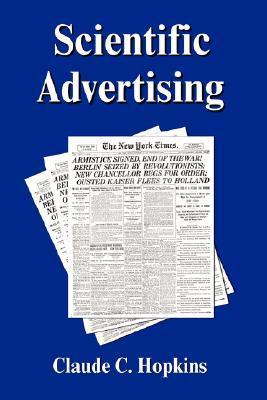
Claude Hopkins’ Scientific Advertising remains an under-appreciated gem over 100 years after its original publication. Though lesser known than contemporary classics like Ogilvy on Advertising, Hopkins’ pioneering work laid the foundation for many modern marketing and copywriting techniques.
With meticulous detail and captivating examples, Hopkins dissects how to craft compelling ads and sales letters. He delves into critical areas overlooked by other books, like testing and optimization. His vigorous A/B testing regime and relentless focus on direct response allowed him to hone persuasive pitches with surgical precision.
Hopkins stresses advertising must sell rather than entertain. To him, an ad wasted on vanity or amusement is money squandered. He insists advertisers focus obsessively on their customers through market research and experimentation. By diving deep into consumer psychology and behavior, Hopkins produced famous campaigns for brands like Pepsodent, Palmolive, and Schlitz.
Scientific Advertising exemplifies marketing stripped down to core essentials. Hopkins’ meticulous analysis unveils the calculus behind advertising that sells. Though dry in parts, his wisdom remains highly relevant even in a radically evolved landscape. This pioneering book belongs on any marketer’s shelf.
3 : Breakthrough Advertising – By Eugene Schwartz
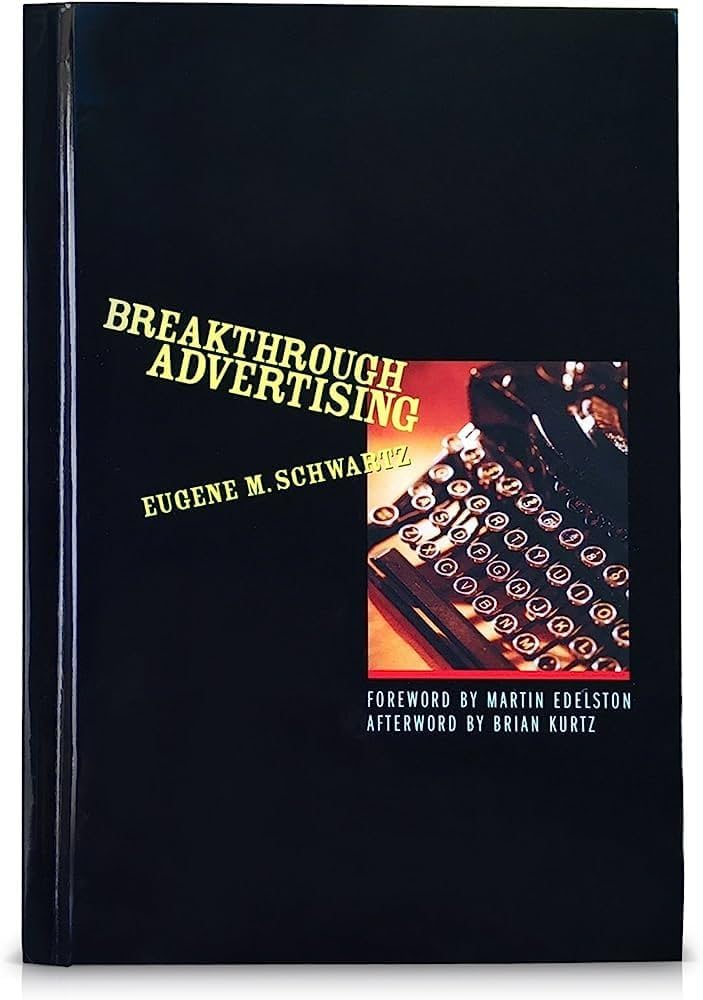
Decades before digital disruption, Eugene Schwartz’s Breakthrough Advertising brilliantly blended marketing fundamentals with human psychology. Though under-appreciated compared to his contemporaries, Schwartz’s sage advice on positioning and copywriting remains must-read material.
With deep empathy, Schwartz explains how to craft messages that sync with customer desires. He explores the importance of conveying drama, credibility, and emotion when making persuasive appeals. Schwartz stresses that breakthrough advertising must always focus on transforming the prospect, not just making the sale.
While dense in parts, his immersive explorations of desire and skepticism deliver powerful insights. Schwartz provides extensive examples for bringing his concepts to life across industries, illuminating abstract theory with concrete application.
Breakthrough Advertising succeeds by fusing the psychological and strategic. Schwartz excavates deeper human truths to enable more potent and nuanced messaging frameworks. His obsession with the customer perspective makes this book essential reading for positioning brands and products to maximize appeal.
4 : Play Bigger – By Al Ramadan, Dave Peterson, Christopher Lochhead and Kevin Maney
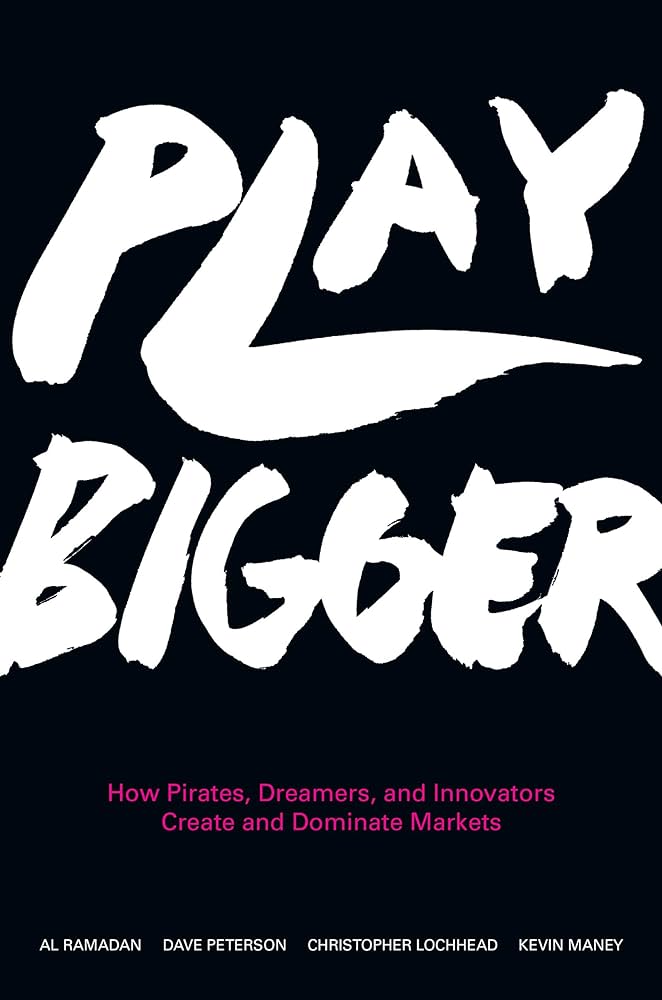
In contrast to abstract marketing theory, Play Bigger provides a hands-on playbook for technology companies striving to break out. Though lesser known than iconic Silicon Valley narratives, this book delivers an insider’s view of practical growth strategies.
Authors Al Ramadan, Dave Peterson, Christopher Lochhead and Kevin Maney draw on their extensive experience advising tech startups. They distill this knowledge into an actionable 13-step framework focused on escaping cramped product-centric mentalities to play in bigger categories ripe for disruption.
While dense sections explain foundational concepts like category design and the importance of developing insights, the thrust remains on tangible execution. They stress orchestrating all elements into a disciplined methodology focused on speed and risk-taking.
Play Bigger diverges from academic marketing books by offering in-the-trenches tips for startups seeking exponential growth. The authors bring theories to life with compelling company examples and exercises that drive home key lessons. This street-smart guide provides invaluable strategies rooted in real-world entrepreneurial success.
5 : Content Design – By Sarah Richards
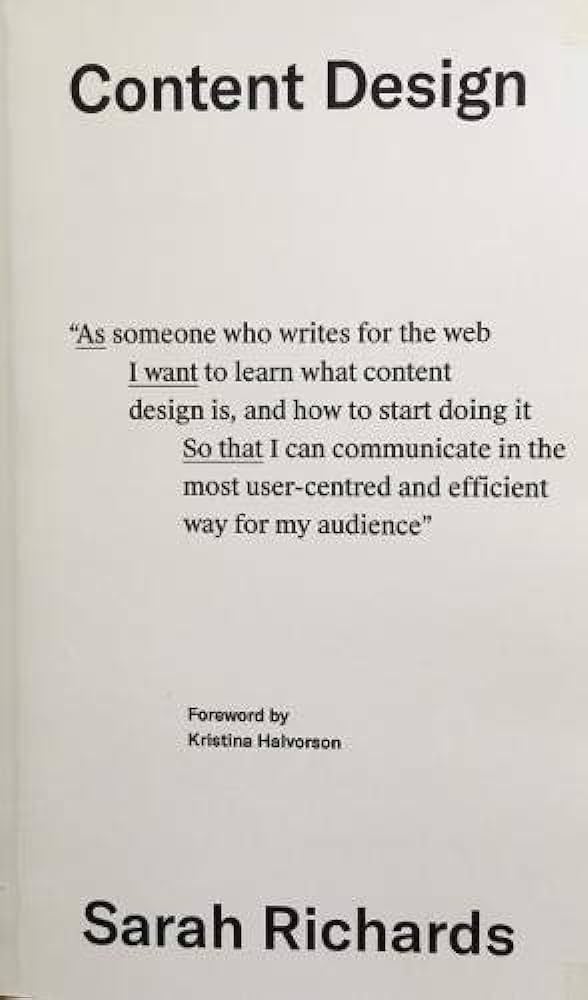
In an era where content saturates every customer touchpoint, Content Design by Sarah Richards and Stephen Pullman provides an essential toolkit for cutting through the noise. This underappreciated book explores how designing for customer experience drives content excellence.
While less prominent than workflow-centric counterparts, Content Design focuses on nuanced areas underserved elsewhere. Richards and Pullman dive deep into content psychology, reader journeys, and organizational design. Their human-centric approach explores how to craft content that resonates by fulfilling deeper needs and desires.
With insightful frameworks and examples, the authors provide extensive guidance for research, strategy, production, and governance. Their emphasis on reader advocacy over marketing sets this book apart. Content Design succeeds by elevating content from a tactical concern to a vital driver of customer satisfaction and loyalty. Though dense, this book equips any content creator with knowledge needed to maximize relevance and resonance.
6 : The Greatest Salesman in the World – By Og Mandino
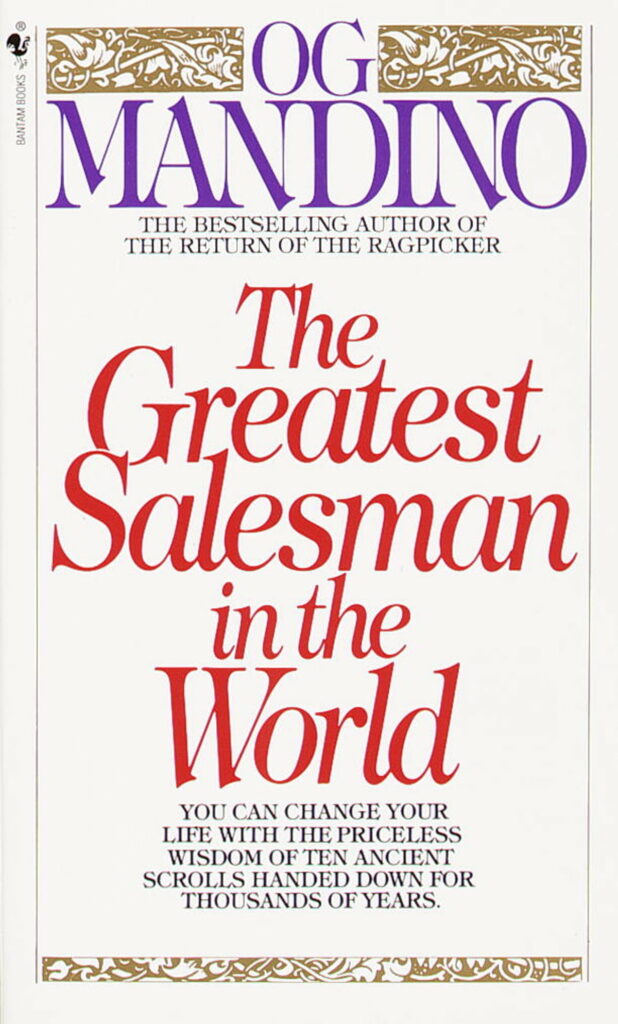
Though less prominent than mainstream selling classics, Og Mandino’s The Greatest Salesman in the World stands as an uplifting parable packed with wisdom. Through an imaginative fable, Mandino distills timeless principles for success in sales and life.
This short inspirational tale follows Hafid, a poor camel boy who inherits the lessons of a legendary salesman. Each chapter unveils a new insight through parables and proverbs, from persistence to self-belief. Though simple, Mandino’s heartfelt storytelling relates universal truths about unlocking human potential.
While light on practical sales techniques, The Greatest Salesman in the World excels by elevating sales to a spiritual plane. Mandino portrays selling as an honored craft requiring self-mastery and service to others. This uplifting book belongs in any salesperson’s library as a source of motivation and higher purpose.
7 : Epic Content Marketing – By Joe Pulizzi
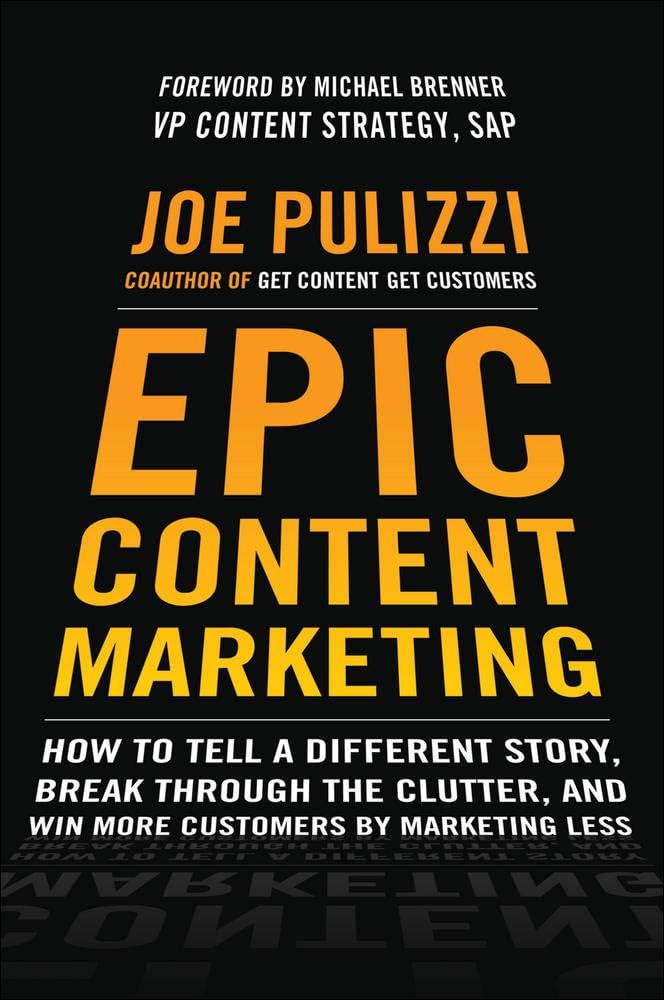
Joe Pulizzi’s Epic Content Marketing provides essential guidance for brands seeking to tell stories that consumers care about. Pulizzi masterfully blends strategic advice with tactical steps for designing, creating, distributing and measuring content.
This comprehensive manual unpacks each element in Pulizzi’s proven content marketing methodology. While dense, the book balances big picture concepts like developing an editorial mission with practical tools like conversation rate optimization. Chapters compressed with tips showcase Pulizzi’s meticulous approach.
By breaking content marketing into an executable process, Epic Content Marketing lifts the concept from buzzword to concrete strategy. Pulizzi draws on extensive research and client experience to provide authoritative best practices. This book epitomizes Pulizzi’s pioneering role elevating content from an art to a science.
8 : How to Launch a Brand – Fabian Geyrhalter

In an oversaturated marketplace, branding remains critical for standing out. Yet many growth-focused companies neglect nurturing memorable brands. How to Launch a Brand by Fabian Geyrhalter fills this overlooked gap with an accessible and practical guide.
While less prominent than broad branding books, Geyrhalter’s specialized focus on brand launches is unique. He distills years advising startups into a seven-step methodology covering research, identity, storytelling and customer experience.
With engaging case studies and clear visuals, How to Launch a Brand comes alive. Geyrhalter stresses brand creation as a creative human-centered process versus mechanistic exercise. While retaining his structured approach, he shares wisdom for infusing authenticity and meaning into brand identities.
This compact book delivers immense value, cramming big ideas into easily digestible frameworks. Geyrhalter makes branding approachable without losing sophistication. For any company seeking to define and express its essence, this overlooked gem provides a perfect launchpad.
9 : Dotcom Secrets – Russell Brunson
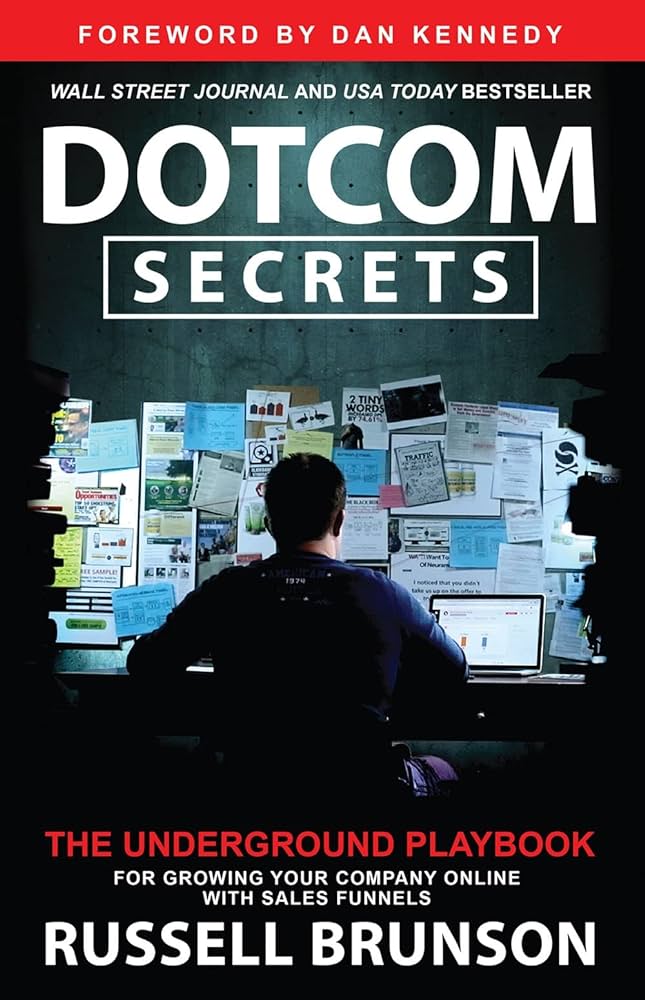
In Dotcom Secrets, Russell Brunson shares the organic marketing framework behind his success building a mini empire of SaaS companies. Despite its hyperbolic title, the book avoids overhyped gimmicks in favor of back-to-basics fundamentals.
With disarming candor and clarity, Brunson reveals the emotional triggers and influencer strategies he used to rapidly grow companies like ClickFunnels. While dense, Brunson’s conversational voice makes the book feel like an insider masterclass in digital marketing.
Underpinning tactics and traffic advice remains Brunson’s emphasis on deeply understanding customers. He insists successful marketing hinges on creating belief through empathy. Brunson’s blend of human understanding and digital proficiency makes Dotcom Secrets a uniquely valuable e-commerce resource.
10 : Building a StoryBrand – By Donald Miller
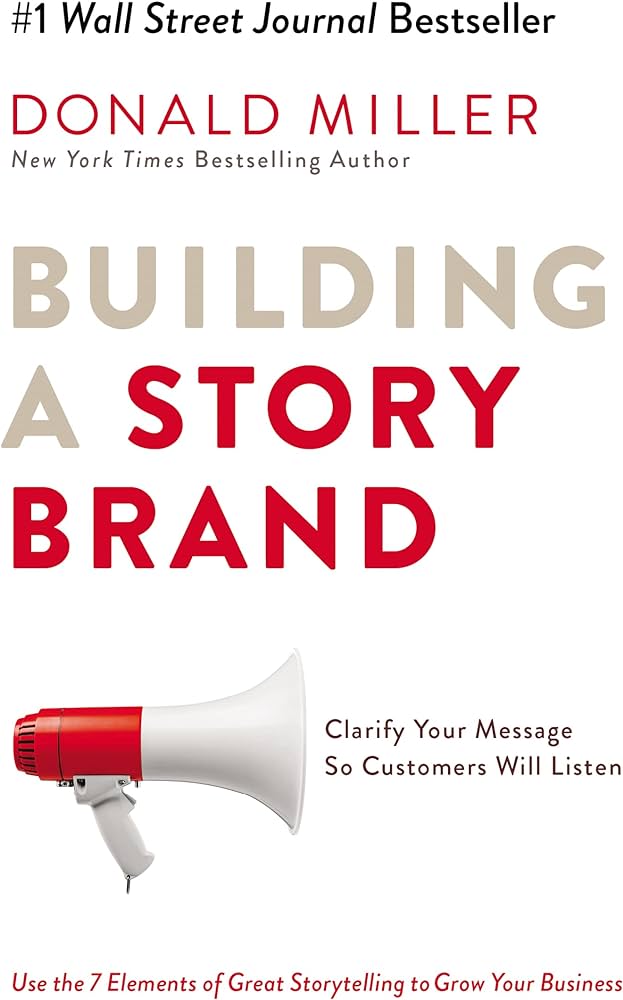
In an oversaturated marketplace, brands compete for fleeting consumer attention. Donald Miller’s Building a StoryBrand provides invaluable guidance for breaking through the noise with resonant storytelling.
Miller outlines the essential story architecture for immediately engaging customers. He reveals how the most effective stories speak to universal desires. Miller blends narrative psychology with marketing strategy to equip any brand to clarify its hero, villain, and guide.
While storytelling techniques abound, Building a StoryBrand stands apart for its concrete application. Miller goes beyond theory to outline practical messaging, slogans, and visuals derived from story principles. He fills each chapter with examples and exercises for enriching brand storytelling at every touchpoint.
This fast-paced book provides a new lens for marketing focused on serving others, not just selling products. Building a StoryBrand deserves wider acclaim for offering an accessible formula for stories that compel action.
11 : This is Marketing – By Seth Godin
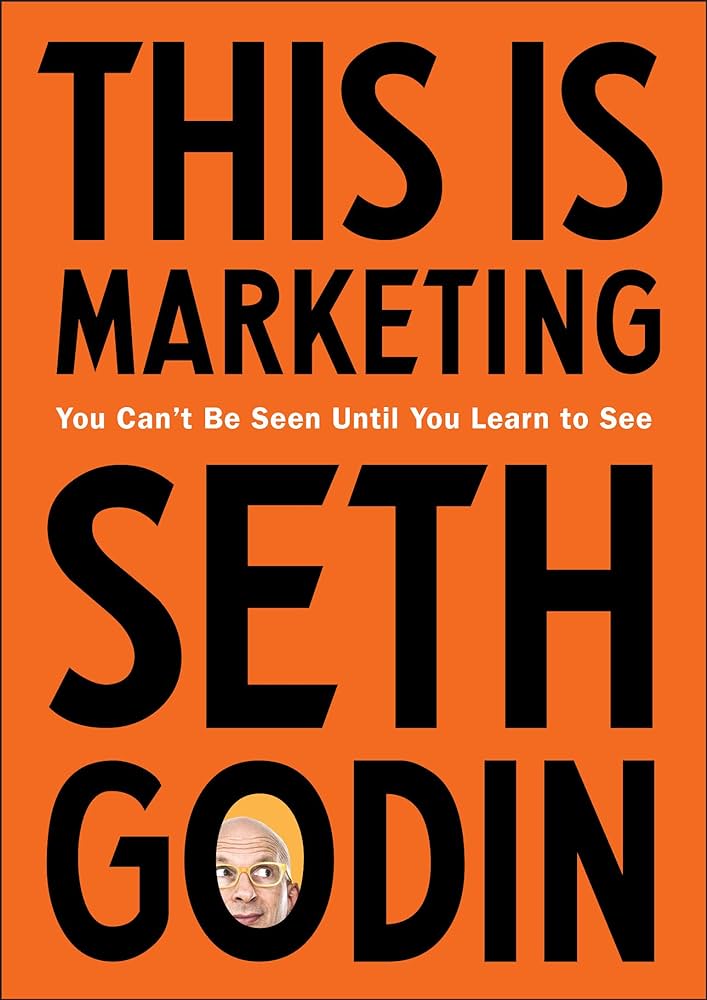
In This is Marketing, Seth Godin distills essential wisdom from decades of insights into a compact manifesto. Godin champions respecting consumers’ time and intelligence by only marketing things worth creating and sharing.
Though familiar concepts, Godin’s unconventional perspectives feel fresh and profoundly human. He discusses complex ideas like prioritizing long-term impact and building tribe with clarity and wit. This is Marketing calls for companies with soul that contribute meaning, not just fill shelves.
Godin avoids technical tactical advice in favor of inspiring principles. Some marketers may crave more concrete steps. However, Godin succeeds by elevating marketing to a noble craft requiring vision and service to spread ideas that matter.
12 : Hooked: How to Build Habit-Forming Products by Nir Eyal
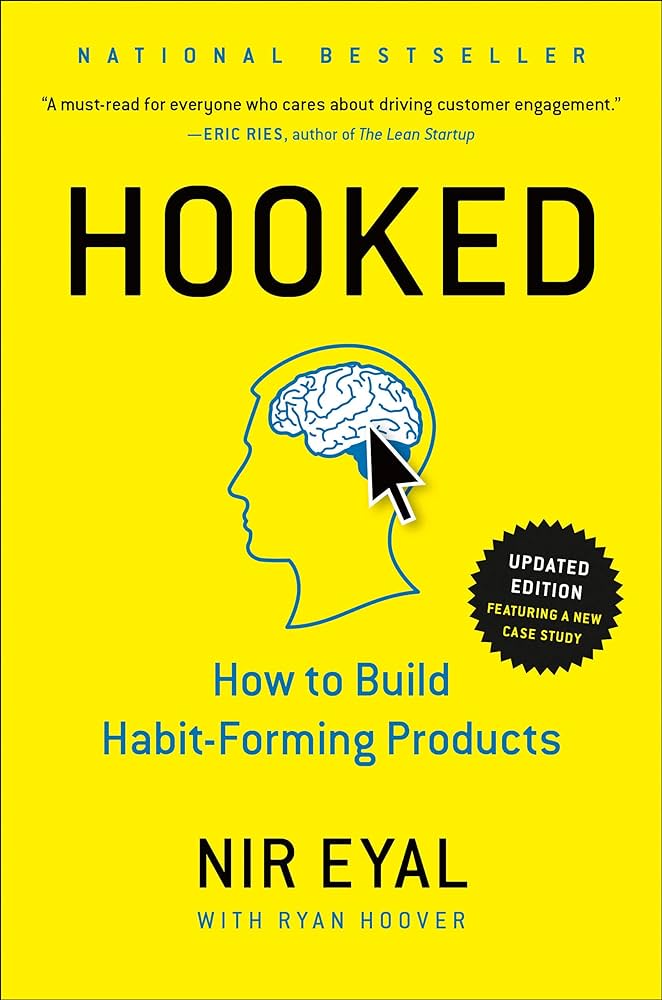
Nir Eyal’s Hooked: How to Build Habit-Forming Products lays bare the psychological techniques successful companies use to make their products addictive. Though less prominent than broad behavioral books, Hooked’s specialized focus provides uniquely valuable – and alarming – insight.
Hooked exposes the calculated ways brands get and keep our attention, from variable rewards to creating itches only their products can scratch. The book explores habits’ foundation in human nature before detailing the Hook Model for engineering compulsive product use.
While dry in parts, Eyal’s case studies vividly illustrate the Hook Model in action across industries. Hooked is essential reading for anyone designing experiences or seeking immunity from manipulative products. Just don’t be surprised if Eyal’s methods for habit creation start transforming your own behaviors.
13 : The 22 Immutable Laws of Marketing – By Al Ries and Jack Trout
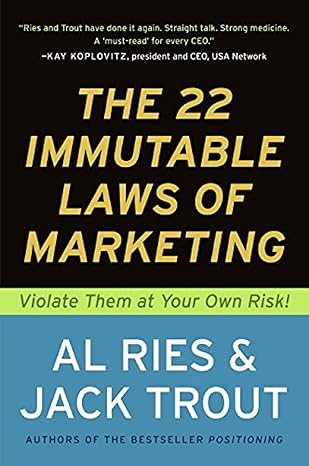
In The 22 Immutable Laws of Marketing, Al Ries and Jack Trout deliver a classic primer on positioning. Though Ries and Trout’s work lacks the flash of more recent marketing gurus, their wise principles remain extremely relevant despite the vast changes since its publication.
The 22 succinct laws boil down complex branding concepts into memorable rules of thumb. While light on tactics, Ries and Trout’s foundational insights about owning mindshare and categories provide invaluable perspective for long-term competitive strategy.
This book succeeds by taking a timeless, analytical approach. Ries and Trout draw extensively on battle-tested lessons from business history to illustrate their tight strategic frameworks. The 22 Immutable Laws of Marketing remains essential reading for any marketer seeking enduring strategic wisdom.
14 : Hacking Growth – Sean Ellis and Morgan Brown
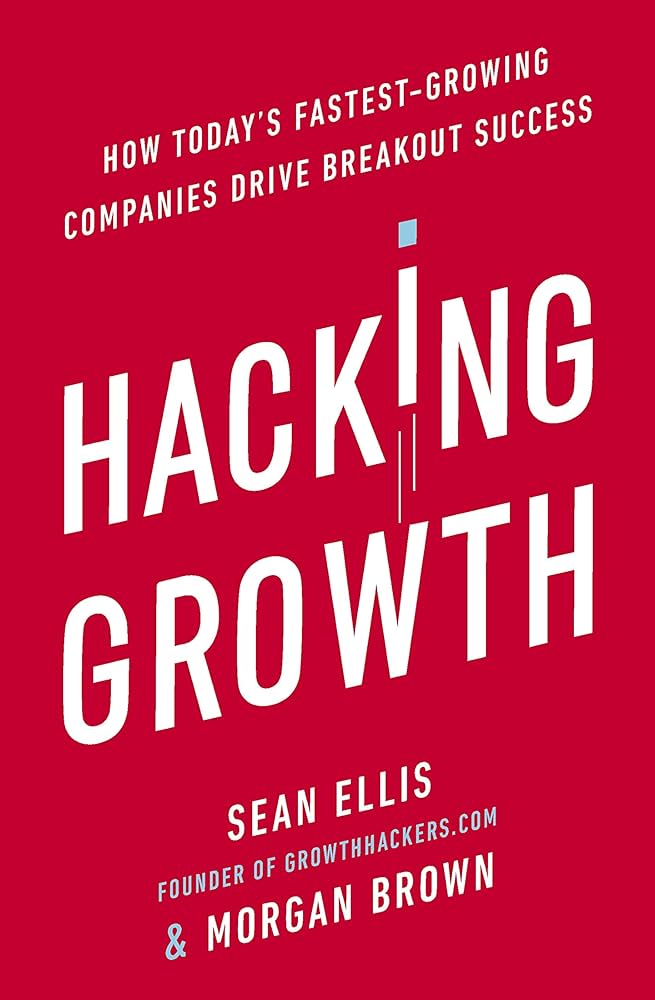
Silicon Valley knows growth. In Hacking Growth, Sean Ellis and Morgan Brown codify proven tactics used by the startups reshaping industries. Though lesser known than broad marketing books, this laser focus on scalable growth delivers an invaluable insider’s toolkit.
Hacking Growth moves fast, mirroring startup culture’s velocity. The authors blast through frameworks like growth hacking and product/market fit with detailed advice for execution. While dense with statistics, their emphasis remains on actionable tips demonstrated through vivid company examples.
For startups struggling to gain traction, the book provides a structured blueprint for igniting and sustaining growth. Hacking Growth deserves more mainstream acclaim for making elusive concepts like viral loops accessible and actionable across functions.
15 : Intercom on Marketing – Des Traynor , Matt Hodges and John Collins
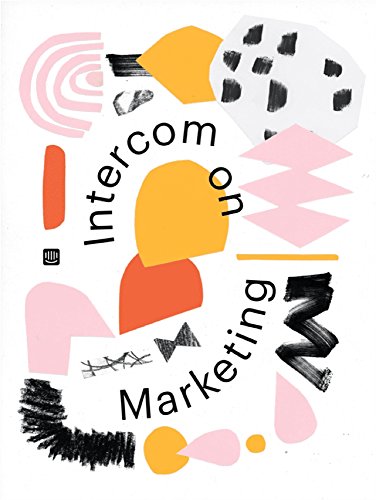
In the fragmented digital landscape, savvy marketing requires mastering a mix of channels and technologies. Few resources bring these elements together like Intercom on Marketing. This under-the-radar book outlines a holistic approach focused on the customer journey.
Elegant design choices make the guide highly browsable, with colorful diagrams and illustrations breaking up concise, skimmable advice. Well-chosen examples demonstrate smart cross-channel coordination driven by customer needs, not marketing ego.
While Intercom promotes its own software, the book avoids overly product-centric advice. This comprehensive playbook helps any digital marketer connect the dots across an intricate landscape. Intercom on Marketing deserves more mainstream praise for elegantly bridging strategy and tactical execution.
16 : Blue Ocean Strategy – W. Chan Kim and Renée Mauborgne
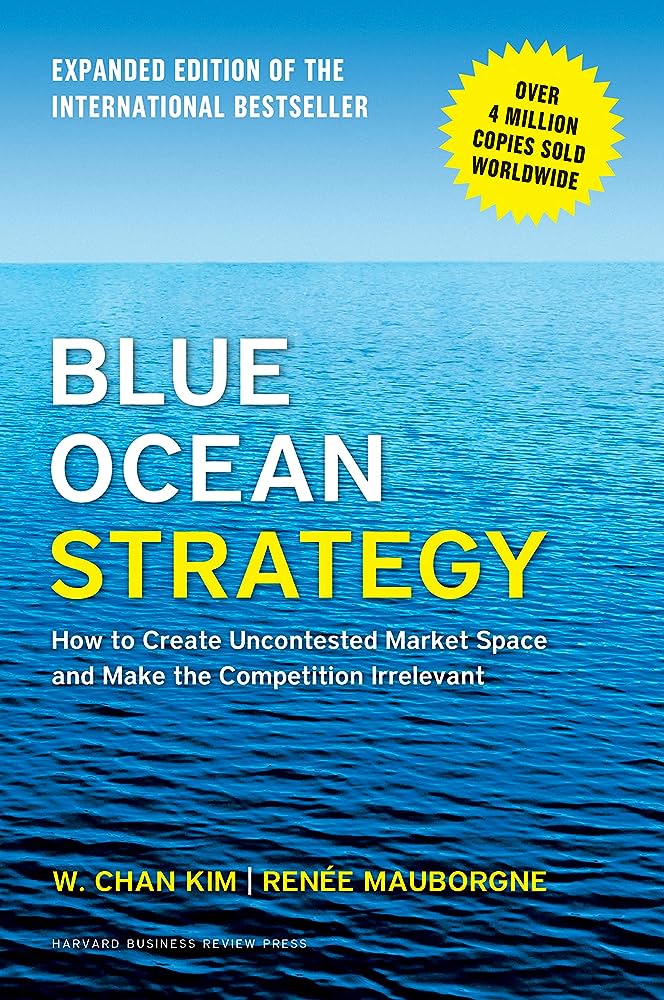
In Blue Ocean Strategy, W. Chan Kim and Renée Mauborgne provide a framework for pursuing innovation and avoiding bloody competition. Though less prominent than mainstream business strategy guides, the book delivers a vital new perspective.
Kim and Mauborgne urge companies to pursue value innovation over incremental improvements. They provide tools for discovering uncontested market spaces packed with growth potential. The core ideas feel as relevant today as when first published over 15 years ago.
While dense writing makes sections a slog, the book comes alive through cases like Cirque de Soleil. These vivid examples highlight the power of strategic moves that seem counterintuitive. For any innovator seeking inspiration, Blue Ocean Strategy offers invaluable principles and perspective for breaking from the pack.
17 : The 1-Page Marketing Plan – Allan Dib
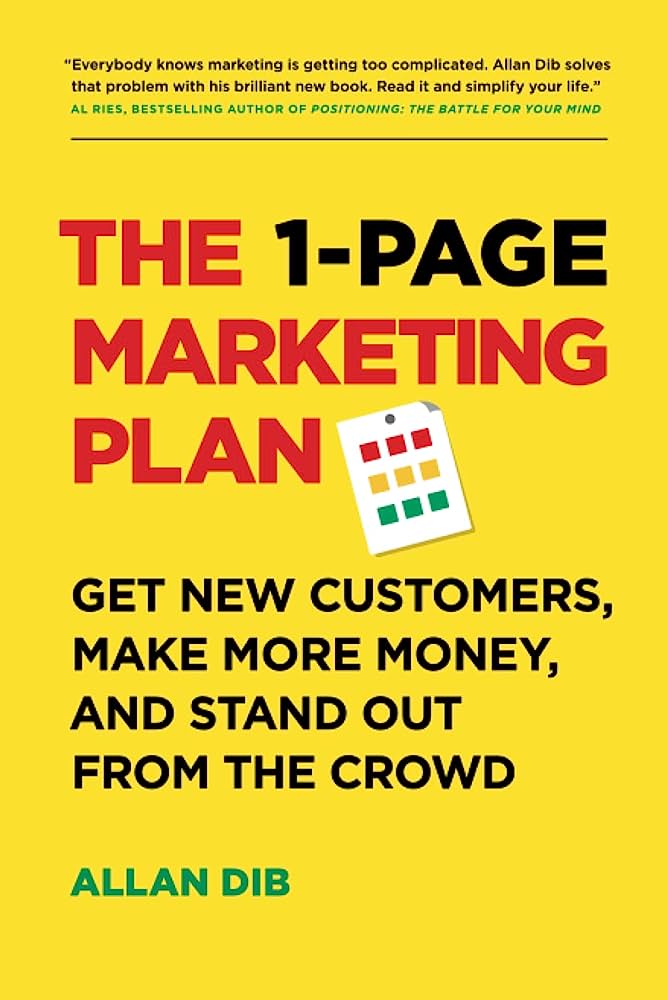
In the constant scramble to juggle strategy, tactics, and execution, marketing can become unnecessarily complex. The 1-Page Marketing Plan by Allan Dib cuts through the convoluted plans with a radically simplified approach.
As promised, Dib outlines a practical marketing system that fits on a single page. He guides readers to identify target customers, high-level strategy, tactics, and metrics in simple one-line sections. While the format seems overly basic, its brevity focuses marketers on the core fundamentals.
By eliminating extraneous complexity, The 1-Page Marketing Plan narrows attention to the critical elements that drive results. The deceptive simplicity of Dib’s approach masks profound insight about streamlining activities to maximize impact. This uncommon format delivers an invaluable perspective for marketers drowning in grandiose strategies.
